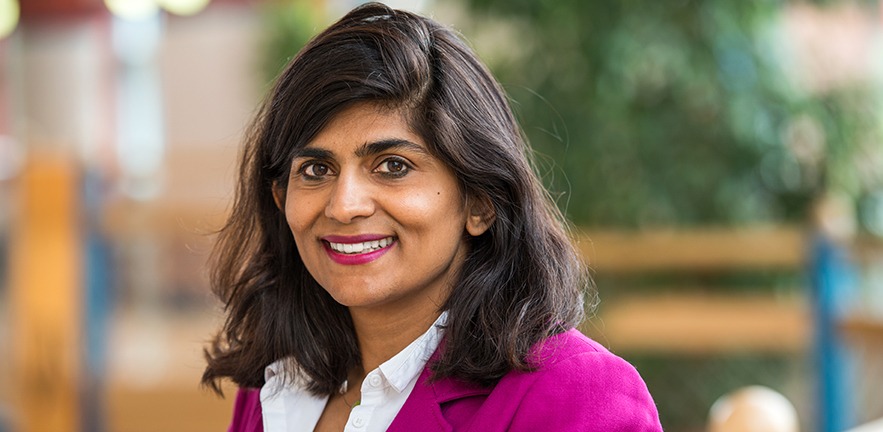The 2023 edition of the MBA employment report from Cambridge Judge Business School once again highlighted the range of opportunities available to graduates of the Cambridge MBA programme, with 94% of graduates receiving job offers within three months.
About 97% of graduates of the class of 2021-2022 switched their country of employment, job function or industry, with graduates landing in 24 different countries following their MBA studies. The companies employing the most Cambridge MBAs were McKinsey & Company, Amazon, Bain & Company, and Citi.
In a recent edition of the Balance Sheet series, host Conrad Chua, Executive Director of the Cambridge MBA programme, spoke with Sadia Cuthbert, Director of CJBS Careers at the Business School. Sadia shared her thoughts about the MBA employment report, preparing for the MBA, and getting the most out of the MBA experience in Cambridge. Watch the interview.
Here are edited excerpts of Sadia’s remarks:
The latest MBA employment report is really encouraging. After the long period of COVID we were able to go back to our previous numbers and see how fantastically the MBAs have done in securing their jobs. Companies had delayed recruiting during COVID so there was pent-up demand.
There has been a bit of a shift from industry into consulting. We have had a significant number of students joining industry once again, but they’ve been overtaken by the number going into consulting at 29%. About 30% have gone into finance once again, which is kind of stable for us. There’s also been a move towards M&A and general management consulting.
Our careers team starts working with new students before their arrival in Cambridge. We ask students to identify their strengths, areas of growth and to focus on their values. This helps them identify which direction and which industries they want to focus on. It’s fine to focus on two or three sectors initially as we don’t expect students to come in with clear answers of where they want to go.
A really exciting part of my job is to see the transformation and transition happening with students. People come in with an expectation and think they’re going to go down a certain track. Then they come into this mix of the class and see people from all walks of life, and then meet companies telling them about what they do, and people’s minds get excited. For example, when we start our activities we bring in a recruiter from private equity, but she talks about various opportunities that exist, not only about finance. She talks about fundraising, marketing, talking to corporate relations, so there are many different aspects and students start to open their eyes.
Students work hard during the year – they work hard on their studies, with us in the careers team, and they are also engaged with each other. And that’s really the beauty of the programme: with the size of our class they can actually get to know everybody, and they help each other significantly.
Being in Cambridge is all about learning, so we encourage students to expand their vision and learn about different sectors. If you’re coming from finance and want to remain in finance, you can still experience something like social innovation, or working within the third economy – perhaps it’s just a project or an event. Students can keep their eye on their career paths but must also be aware that this is an opportunity to learn.
I encourage people to look at internships even before they begin the MBA especially if you are looking to transition into tech and impact. Early startup firms can be the best internships that you can get: you’re really in there, you’re being thrown into the hard end of doing things, and you understand the processes. That’s something that will sell really well at any point on your CV, and you’ll have a lot of interesting stories to talk about in your interviews.


